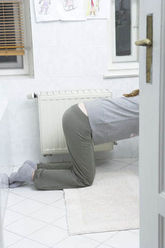 Triple screen testing goes beyond the alpha-fetoprotein test to determine if you are carrying a Down Syndrome baby. With a triple screen test your alpha-fetoprotein is tested along with your levels of hCG and unconjugated estriol, which is a form of estrogen produced by the placenta.
The levels of these three chemicals in your blood may indicate an increased chance of your baby being Down Syndrome, and the test in older mothers the detection rate is about 60%, with a 25% false positive rate.
Triple screen testing goes beyond the alpha-fetoprotein test to determine if you are carrying a Down Syndrome baby. With a triple screen test your alpha-fetoprotein is tested along with your levels of hCG and unconjugated estriol, which is a form of estrogen produced by the placenta.
The levels of these three chemicals in your blood may indicate an increased chance of your baby being Down Syndrome, and the test in older mothers the detection rate is about 60%, with a 25% false positive rate.
How is a triple screen test performed?
A sample of blood is drawn from the mother, which is then tested to see if any of the chemicals mentioned above are abnormal. There are a number of different factors which are taken into consideration when doing the test:- Mothers age
- Gestational age of your baby
- Weight
- Diabetes
- Multiple births
What happens if your test results are abnormal?
Should your triple screen test results indicate an abnormal amount of the above chemicals, your healthcare provider would then take out further tests to confirm the results of the test. Remember that getting abnormal results, doesn’t mean that your baby may be suffering an serious damage or harm.Triple Screen Test


